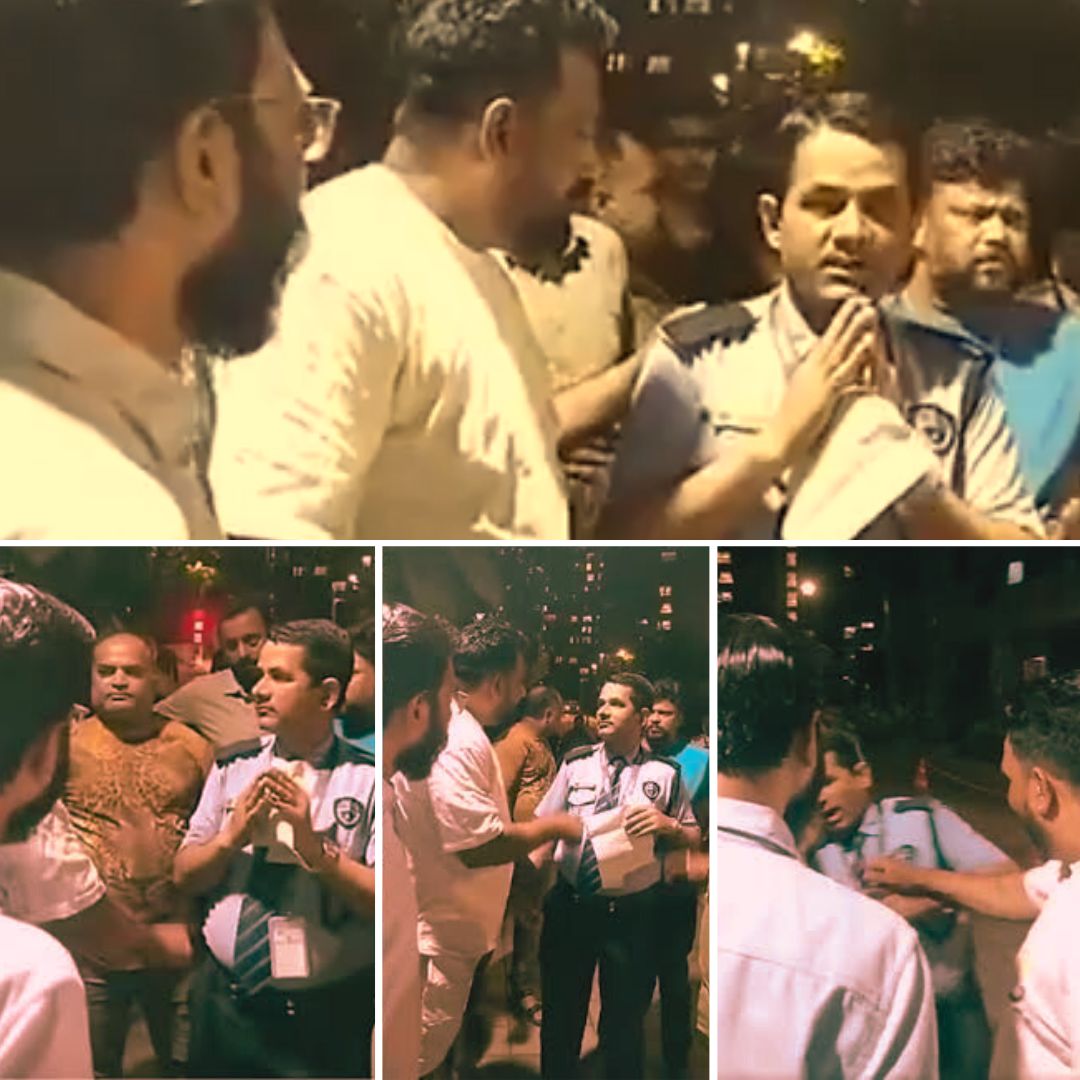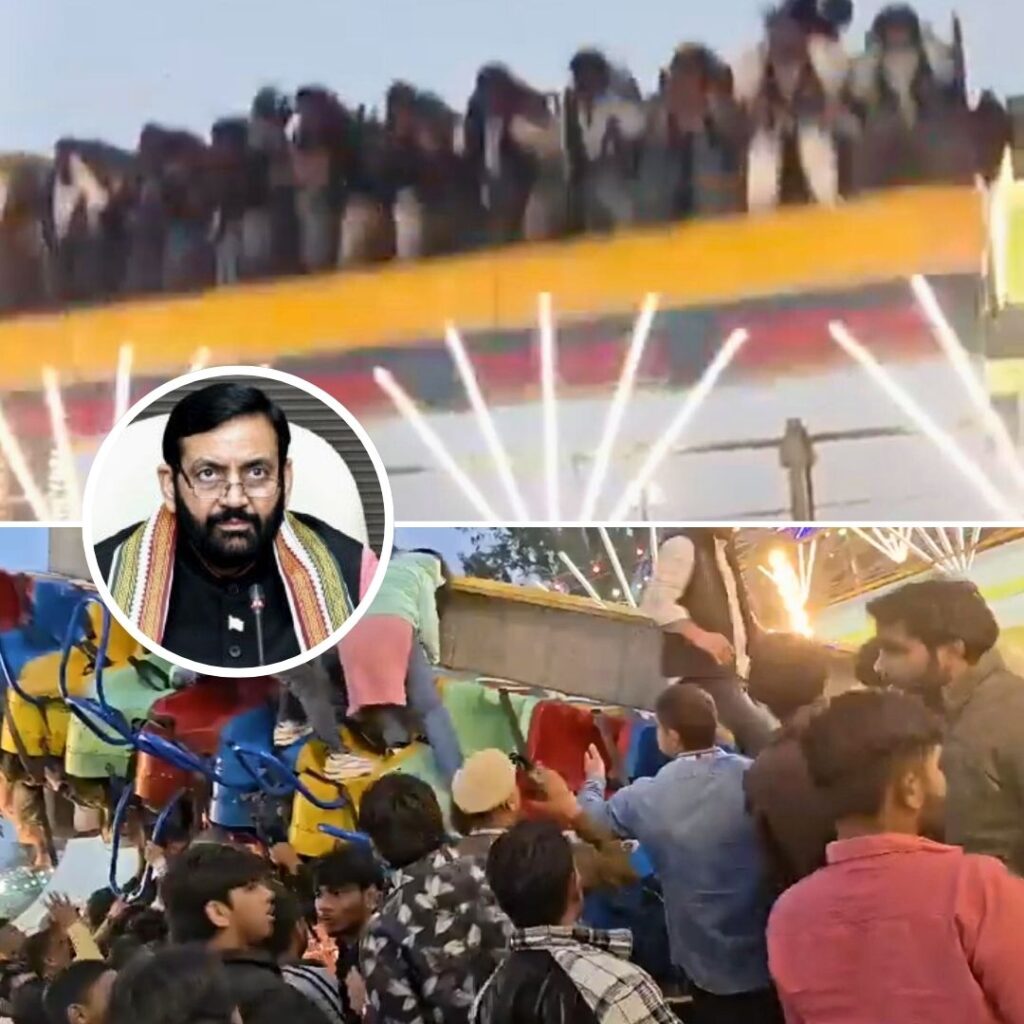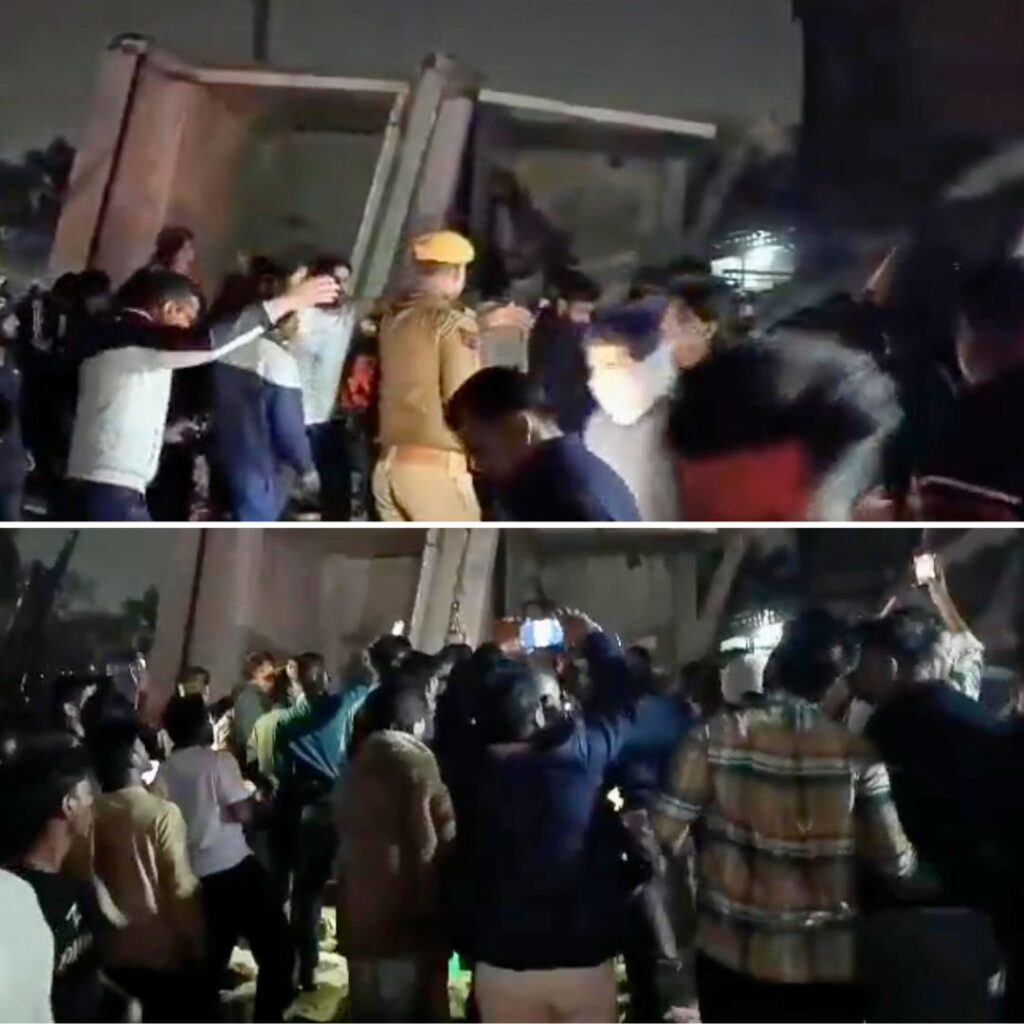A security guard at L&T Powai in Mumbai was allegedly assaulted by Maharashtra Navnirman Sena (MNS) workers after refusing to speak Marathi during an argument. The incident escalated when the guard reportedly made derogatory remarks about the Marathi language, saying, “Marathi can go to hell,” which enraged MNS members.
A video of the assault, showing the guard being slapped and apologising with folded hands, has gone viral, sparking debates over linguistic intolerance. MNS spokesperson Vageesh Saraswat defended the party’s stance, stating that while violence is unintentional, disrespect towards Marathi will not be tolerated.
Language Politics in Maharashtra
The altercation began when the North Indian security guard got into a disagreement with a Marathi-speaking individual at the L&T Powai complex. The situation escalated as the guard struggled to communicate in Marathi, leading to frustration on both sides. Reports indicate that during the heated exchange, the guard made offensive remarks about the Marathi language, stating, “Marathi can go to hell.”
This comment provoked a strong reaction from MNS workers present at the scene. Video footage of the incident has since surfaced online, showing MNS members confronting and slapping the guard while demanding that he learn Marathi and “lower his arrogance.”
Bystanders attempted to intervene but were unable to prevent the assault. This incident is particularly alarming as it follows a trend of similar confrontations in Mumbai, where MNS workers have targeted individuals for their language abilities.
Rising Tensions Over Linguistic Disputes
This violent episode is not an isolated case; it reflects a broader pattern of linguistic intolerance in Maharashtra. In recent months, there have been several incidents involving MNS members clashing with non-Marathi speakers. For instance, just last month, a Karnataka State Road Transport Corporation (KSRTC) bus conductor was assaulted in Belagavi for speaking Kannada instead of Marathi, exacerbating tensions between Maharashtra and Karnataka.
Additionally, MNS workers attacked employees at a D-Mart store in Versova after they refused to communicate in Marathi. These incidents raise significant concerns about enforced linguistic conformity and regional identity politics within Maharashtra, prompting discussions about the implications of such actions on social cohesion.
Community Reactions and Social Media Outcry
The assault on the security guard has sparked widespread outrage across social media platforms, with many users condemning the violence and calling for accountability from political parties like MNS. Hashtags such as #JusticeForGuard and #LinguisticTolerance have trended as netizens express their discontent with the ongoing culture of intimidation based on language.
Activists and community leaders are mobilising to raise awareness about these issues, urging authorities to take stronger action against such incidents to ensure that all individuals feel safe and respected regardless of their linguistic background. Public forums and discussions are emerging as platforms for citizens to voice their concerns about rising intolerance and advocate for a more inclusive society.
The Logical Indian’s Perspective
The Logical Indian stands firmly against any form of violence or intimidation used to enforce language preferences. We believe that while respecting local languages is essential for cultural identity, coercion undermines harmony in a multicultural society.
Such incidents only serve to deepen divides and foster fear among communities. It is crucial for us as a society to engage in constructive dialogue that promotes understanding and empathy among diverse linguistic groups. We urge our readers to reflect on how we can collectively foster an environment where every individual feels safe and respected, regardless of their linguistic background.
Should linguistic diversity be celebrated as a strength rather than a source of conflict? How can we work together to promote inclusivity and mutual respect? Share your thoughts and join the conversation!
पहले अंधेरी अब पवई
— Ravi Pandey🇮🇳 (@ravipandey2643) April 1, 2025
मराठी नहीं आने पर MNS के गुंडो ने L&T के सुरक्षा गार्ड को पीटा
पवई में के पूर्वांचल के गार्ड की मनसे के गुंडो ने पिटाई कर जान से मारने की धमकी भी दी.. कहा मराठी भाषा का अनादर करने वाले किसी भी व्यक्ति को नहीं बख्शेंगे।
#Mumbai #MNS #Maharastra #Pawai pic.twitter.com/oXzvMb2xgA











